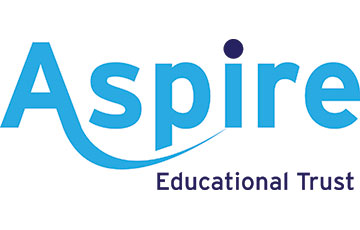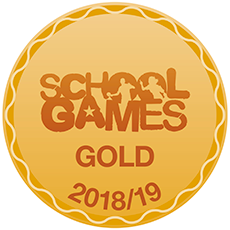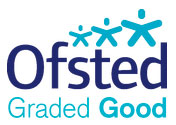Maths
Maths Statement of Intent:
At Wilbraham Primary School, we follow a curriculum that engineers success using a mastery approach. This enables all children to master the mathematics curriculum through careful curriculum sequencing and small-step progression.
The National Curriculum for mathematics aims to ensure that all pupils:
- become fluent in the fundamentals of mathematics, including through varied and frequent practice with increasingly complex problems over time, so that pupils develop conceptual understanding and the ability to recall and apply knowledge rapidly and accurately.
- reason mathematically by following a line of enquiry, conjecturing relationships and generalisations, and developing an argument, justification or proof using mathematical language.
- can solve problems by applying their mathematics to a variety of routine and nonroutine problems with increasing sophistication, including breaking down problems into a series of simpler steps and persevering in seeking solutions.
At Wilbraham Primary School, these three elements are embedded within maths lessons and are developed over time. Maths is a rich and interconnected subject and our aim is to support children to move fluently between different concepts and different representations of mathematical ideas, through both procedural and conceptual variation.
Our aim is to develop a positive mindset of mathematics and ensure depth of conceptual understanding through progressive mathematical fluency, problem-solving and reasoning skills for all children. This helps our children to know more and remember more. Our mathematics curriculum is planned and sequenced using the small step progression unit sequence from the Oak National Academy Curriculum Plans for KS1 and KS2. Children learn to build networks of connections in mathematics by constructing understanding of mathematical ideas and awareness of the relationships between concrete experiences, language, pictures, and mathematical symbols (Haylock and Thangata 2007).
Lessons are designed around the NCETM’s Five Big Ideas in teaching for Mastery. Teachers ensure a coherent progression through the curriculum. Representations are used to expose mathematical structure and children use precise mathematical language to describe their thinking. Tasks are carefully planned to ensure concepts are vaired to draw attention to critical features. Fluency, the efficient and accurate recall of key number facts, is built through recognising relationships and making connections.
In Key Stages One and Two, children are taught in mixed attainment classes and follow the Oak National Academy Curriculum Plans for KS1 and KS2 in sequence.
Children are supported to reason deeply about the maths they explore, using the prompts ‘What do you see? (How do you see it?) What do you notice? (Why is that happening?) What do you wonder? (How could you find that out?). Scaffolding and directed support are used to ensure children are mastering the small steps of progression at roughly the same rate. We ensure challenge for all children by giving everyone the opportunity to develop fluency and reasoning skills at an appropriate level across a range of contexts, including through targeted questioning. Collaborative learning and dialogic teaching strategies support the use of rich mathematical talk, giving children the opportunity to explore mathematical concepts, resolve mistakes and identify misconceptions with growing independence. Mistakes in maths are valued and celebrated. Unpicking misconceptions so that children evaluate their thinking, and make changes and adaptations to future work, is vital in scaffolding them towards greater independent learning.
Mastering Number
We use the ‘Mastering Number for Reception and KS1’ materials in school to secure firm foundations and develop good number sense for all children across school. Children participate in lessons, which are taught outside of the main maths lesson for 10 to 15 minutes, on four days each week. In these short sessions, children are encouraged to notice, explore and explain patterns and connections they see when exploring mathematical concepts.
Assessment
Before children start a new unit of learning, they will complete a pre-assessment using the ‘example assessment questions’ from the previous year/unit from the Maths Guidance: key stages 1 and 2. This will focus on the essential skills, knowledge and understanding that children need from the previous year group(s) to enable the teacher to ascertain the starting points and any gaps in knowledge so that all children are ready to progress onto the new learning.
At the end of the unit, children will complete a post-assessment using the ‘example assessment questions’ from the current year/unit. This will be used to provide pupils with information about their performance during the assessments, with the goal of helping them to improve their learning and as an opportunity for teachers to find out what a child can and cannot do or does and does not know as a tool to inform future ‘keep-up’ interventions.
Children are then assessed at the end of each academic year, on all key areas from the Maths Guidance: key stages 1 and 2 for their year group.
The rationale behind our mathematics curriculum is based upon guidance from:
The Education Endowment Foundation Improving Mathematics in Early Years and Key Stage 1 and Improving Mathematics in Key Stage 2 and 3
The Ofsted Research Review of Mathematics Research review series
The Department for Education non-statutory for the National Curriculum Mathematics guidance: key stages 1 and 2
The National Centre for the Teaching of mathematics (NCETM) Home | NCETM
Click here to find out about Maths in our Early Years
Click here to learn about a typical Maths Lesson
Click here to find out about Maths and SEND and our EAL provision
To see the Maths curriculum overview and the current long term plans for each year group click below.
 Wilbraham Primary School
Wilbraham Primary School




